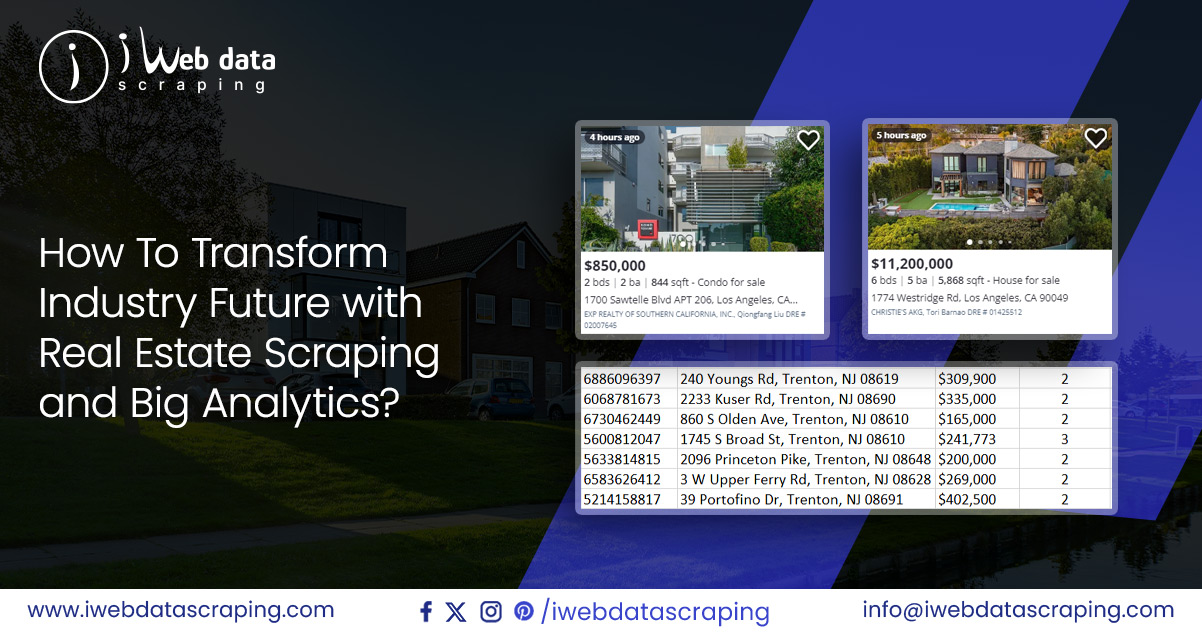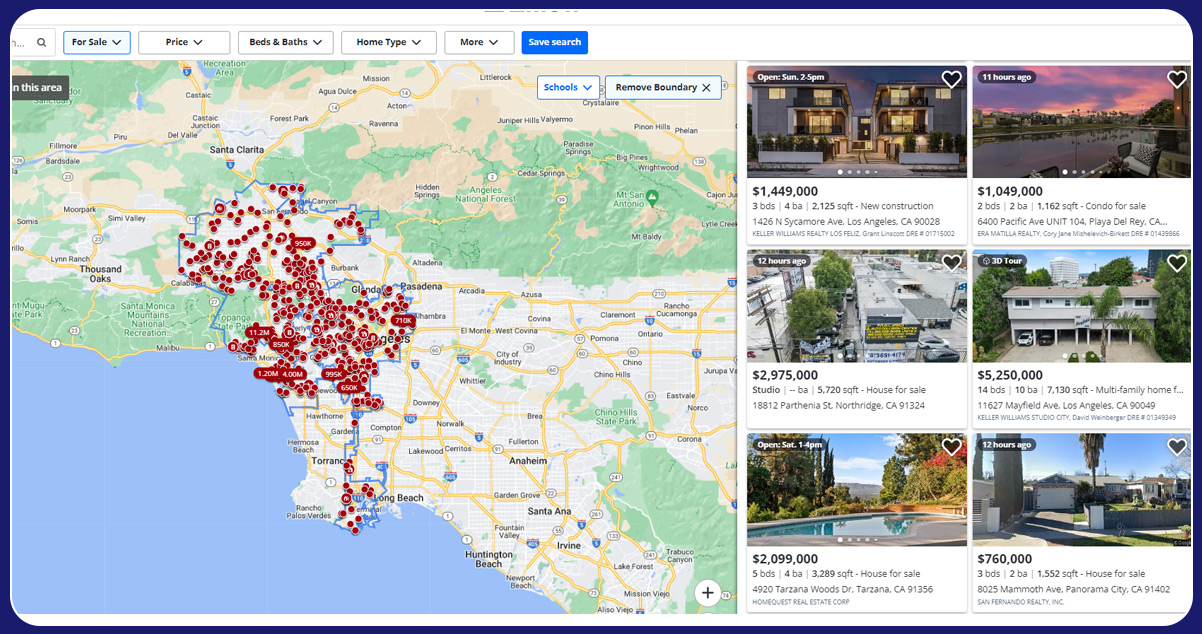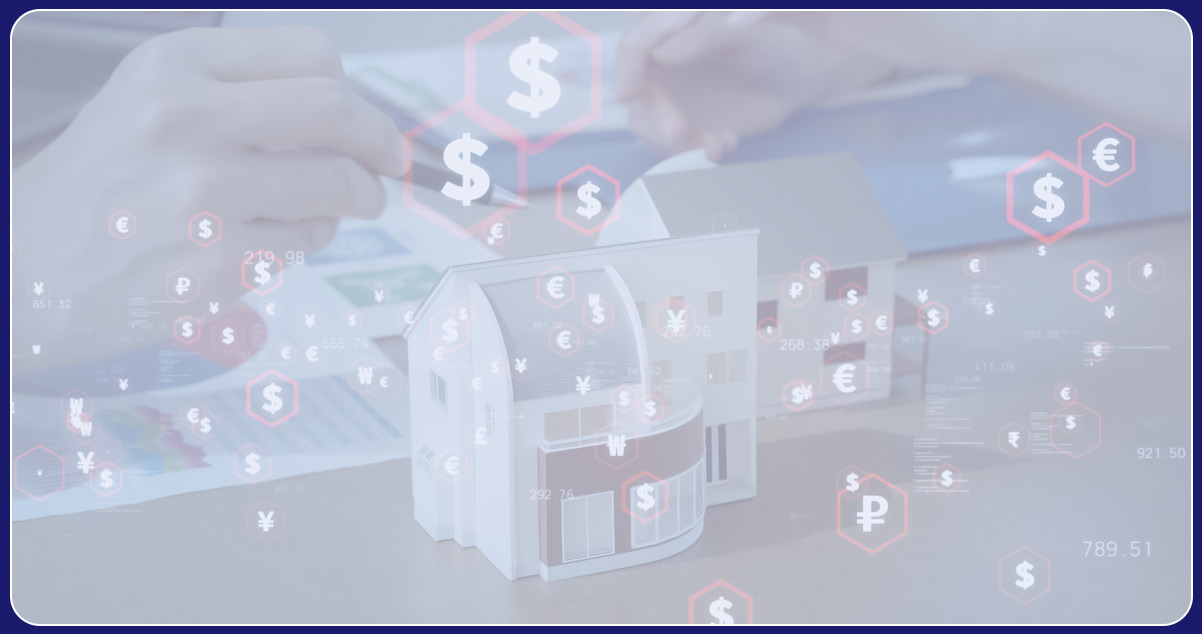

In any country, the real estate landscape has numerous firms vying for market share. You need high-quality and extensive data resources to distinguish your real estate company from the competition truly.
As a real estate professional, you're well-acquainted with brokers, property listings, plots, and pricing. The task of gathering and analyzing this information can be arduous and time-consuming. Staying ahead of the competition requires an understanding of current industry dynamics and the ability to anticipate future trends.
Property data extraction provides valuable insights into prevailing market trends and empowers you to predict future market directions. It involves reviewing listings, agent records, and emails and creating a comprehensive database. With this information, you can craft efficient and strategic marketing campaigns, securing a more prominent position in the real estate sector. A precise database boosts revenue potential and positions you as an industry innovator. This forward-thinking approach enables you to lead and stay ahead of the market curve. Obtain accurate and clean data for the real estate industry with our assistance.
Data utilization to transform business operations is prevalent across diverse industries, including the Real Estate sector. A wealth of historical data is stored in physical files, digitized microfilm, and scanned PDFs worldwide. Currently, efforts are underway to structure and digitize this data for analysis.
The sheer volume of data generated with real estate data scraping services, encompassing user-generated content, property records, and realtor listings, is immense. Furthermore, the vast reservoir of data produced by the Internet of Things (IoT) still needs to be explored in the real estate industry.
Forbes reports that Big Data adoption has surged from 17% in 2015 to 53% today. While investment and hedge fund firms were early adopters of alternative data, the real estate sector now embraces this trend, envisioning a forward-looking approach beyond mere financial statistics.
Big Data encompasses the management of vast volumes of accumulated or rapidly generated data available with web scraping real estate websites, leveraging it for predictive analytics, user behavior analysis, and valuable insights through algorithms. This extensive data analysis finds applications in various domains, such as medical science, finance, news, and journalism.

Big Data is reshaping the Real Estate industry. A National Association of Realtors study reveals that 51% of home buyers located their dream property online within the past year. The Internet has transformed property searches, with apps, websites, and forums harnessing Big Data. It includes proximity trackers, real-time traffic estimates, noise levels, late-night activities, reviews, and more, providing comprehensive insights for potential buyers and renters. Platforms like Zillow and Zumper compile curated information seeking the help of real estate scraping tools. At the same time, realtors benefit from predictive analysis, streamlining the property market into an informed, calculated endeavor. Let's understand how Property data scraping and Big Data are interrelated.
Big Data and real estate scraping work together to streamline data collection, enhance data quality, and provide the analytical tools to extract valuable insights. This integration supports more informed decision-making, improved market intelligence, and greater efficiency in the real estate industry. Big data and real estate scraping are intricately connected in the modern real estate industry, with each complementing and enhancing the other in several ways:
Data Enrichment: Real estate scraping tools collect vast amounts of data from various sources, including property listings, market trends, and pricing history. Big data techniques are then employed to enrich this raw data by incorporating additional contextual information, such as demographic data, local amenities, environmental factors, and economic indicators.
Predictive Analytics: Big data analytics enable real estate professionals to identify patterns and trends within the scraped data. This information is helpful for predictive modeling to anticipate future property market developments, pricing fluctuations, and buyer/seller behavior. It empowers decision-makers to make more informed and strategic choices.
Market Research: Real estate firms use scraping to gather data on competitor listings, pricing strategies, and market demand. Big Data analytics help process and interpret this information, allowing businesses to refine their marketing and sales strategies to gain a competitive edge.
Customer Insights: Based on scraped data, Big Data can analyze the preferences, behaviors, and demographics of potential buyers and renters. This insight aids in tailoring property listings and marketing campaigns to target specific audiences effectively.
Property Valuation: Real estate scraping provides data on recent property sales, rental rates, and property characteristics. Big data analytics can determine accurate property valuations by considering various influencing factors, helping real estate professionals and appraisers offer fair pricing.
Risk Assessment: Real estate companies can assess investment risks more effectively by integrating big data analytics with scraping data. They can identify potential issues, such as market volatility, legal restrictions, or environmental factors, that might affect a property's long-term value or profitability.
Efficient Marketing: Real estate scraping can collect leads and contact information from property listings. Big data analytics can then segment and analyze this data to create highly targeted marketing campaigns, reducing costs and improving conversion rates.
Portfolio Management: For real estate investment firms, big data techniques can help manage and optimize property portfolios. They can assess portfolio performance, identify underperforming assets, and make data-driven decisions regarding acquisitions, sales, or renovations.
Big Data has brought transformative changes to the real estate industry, enhancing market security for both buyers and sellers through data-driven decision-making.
Precision in Property Valuation: Real estate firms utilize Big Data and machine learning for automated evaluation models, reducing appraisal errors to about 9%. Traditional appraisals often rely on nearby property prices, overlooking dynamic factors like improvements and amenities. New models leverage economic, demographic, and geographic data to analyze property values objectively, reducing human error and subjectivity.
Informed Buying and Selling: Scrape property data to empower buyers and sellers, enabling well-planned decisions. Understanding communities and environments aids in designing properties that promote resident health, energy efficiency, and self-sustainability. Big Data minimizes the role of uninformed brokers and aligns market expectations, leading to healthier real estate transactions.
Enhanced Financial Decision-Making: Financial institutions involved in real estate transactions benefit from data-oriented insights. For instance, banks can use Big Data to assess whether a foreclosure or short sale aligns with the market offer, reducing fraud and streamlining workflows. Digitization of records reduces paper usage and minimizes data entry errors.
Big Data in real estate is not solely focused on business improvement but also on enhancing the quality of life for buyers, offering additional advantages.
Location Intelligence for Property Search: Geographic Information Systems, widely used in navigation systems, are now applied in real estate. This technology aids government agencies and real estate managers in capturing, storing, and visually present location information. It makes house hunting and location scouting more immersive and efficient. Real-time virtual imaging enhances traditional scouting methods, reducing reliance on agents and brokers.
Building Management Technology: The Internet of Things (IoT) revolutionizes real estate management. Sensors that monitor factors like air temperature and equipment conditions inside buildings and communities are readily available. These systems expedite maintenance, lower costs, and provide unparalleled convenience to tenants and residents, ensuring a more comfortable and efficient living experience.

The impact of technology, fueled by big data analytics, on fundamental aspects like quality of life is intriguing. Numerous cities are now incorporating air quality sensors into their infrastructure to monitor air quality. Such datasets can significantly affect individuals' choices of where to live, shaping buying and selling trends. In the real estate industry, the days of chasing buyers are behind us, as most buyers are well-informed and have abundant choices. The future of real estate companies lies in accurately anticipating where buyers will invest, and location intelligence and IoT play pivotal roles in achieving this goal.
For further details, contact iWeb Data Scraping now! You can also reach us for all your web scraping service and mobile app data scraping needs.